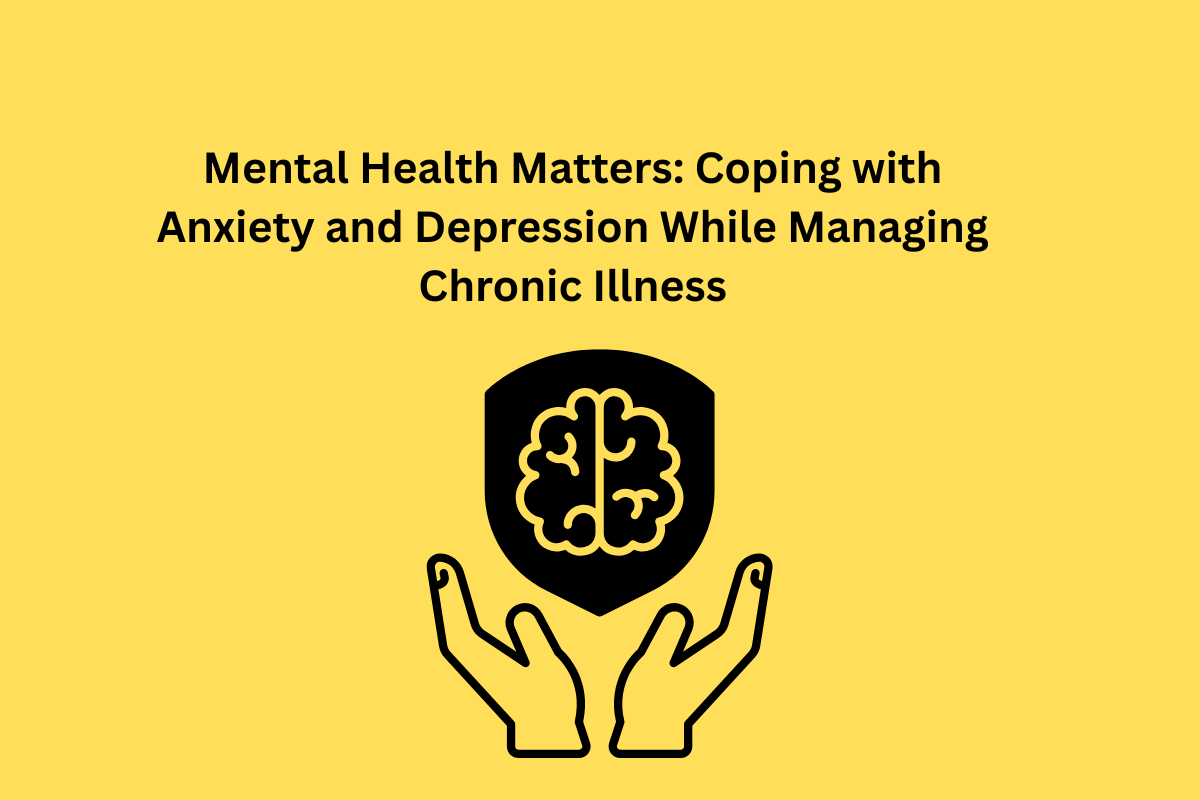That’s a powerful and important topic. Here’s a blog post draft you can use or refine for your audience:
Mental Health Matters: Coping with Anxiety and Depression While Managing Chronic Illness
Living with a chronic illness often means navigating more than just physical symptoms. For many, the emotional weight—especially anxiety and depression—can be just as heavy. It’s not uncommon to feel overwhelmed, frustrated, or even hopeless when each day comes with new health-related challenges. But your mental well-being matters, and there are ways to cope that honor both your physical and emotional health.
1. Acknowledge Your Feelings
It’s okay to not be okay. Chronic illness can take a toll on your sense of identity, your relationships, and your future plans. Validating your emotions is the first step toward healing. You’re not weak for struggling—you’re human.
2. Create a Support System
You don’t have to do this alone. Connect with others who understand—whether it's family, friends, online communities, or support groups for chronic illness and mental health. Talking with someone who "gets it" can be incredibly therapeutic.
3. Build a Self-Care Routine
Self-care is more than spa days; it’s creating routines that nourish your mind and body. Prioritize sleep, eat nourishing foods, move your body gently (as able), and set realistic goals for yourself. Small, consistent actions can create a huge impact.
4. Therapy Is a Tool, Not a Taboo
Speaking to a mental health professional can be life-changing. Therapists can help you untangle emotions, build resilience, and find strategies tailored to your unique challenges. Cognitive Behavioral Therapy (CBT) is particularly effective for those facing chronic pain or illness.
5. Mindfulness and Relaxation Techniques
Practices like deep breathing, meditation, and journaling can ease the storm inside. They help you anchor your thoughts, reduce anxiety, and manage emotional triggers that might make physical symptoms feel worse.
6. Set Boundaries Without Guilt
Managing a chronic illness sometimes means saying "no" more often. That’s not selfish—it’s smart. Boundaries protect your energy and give you space to heal. You deserve that grace.
7. Celebrate Small Wins
Getting out of bed. Taking your meds. Drinking water. Each step counts. Celebrate progress, not perfection. Acknowledge your courage in simply trying.
You Are Not Alone.
Anxiety and depression are common among those with chronic illness—but they don’t have to define you. With compassion, support, and the right tools, you can find balance, hope, and strength—one day at a time.



Comments ()